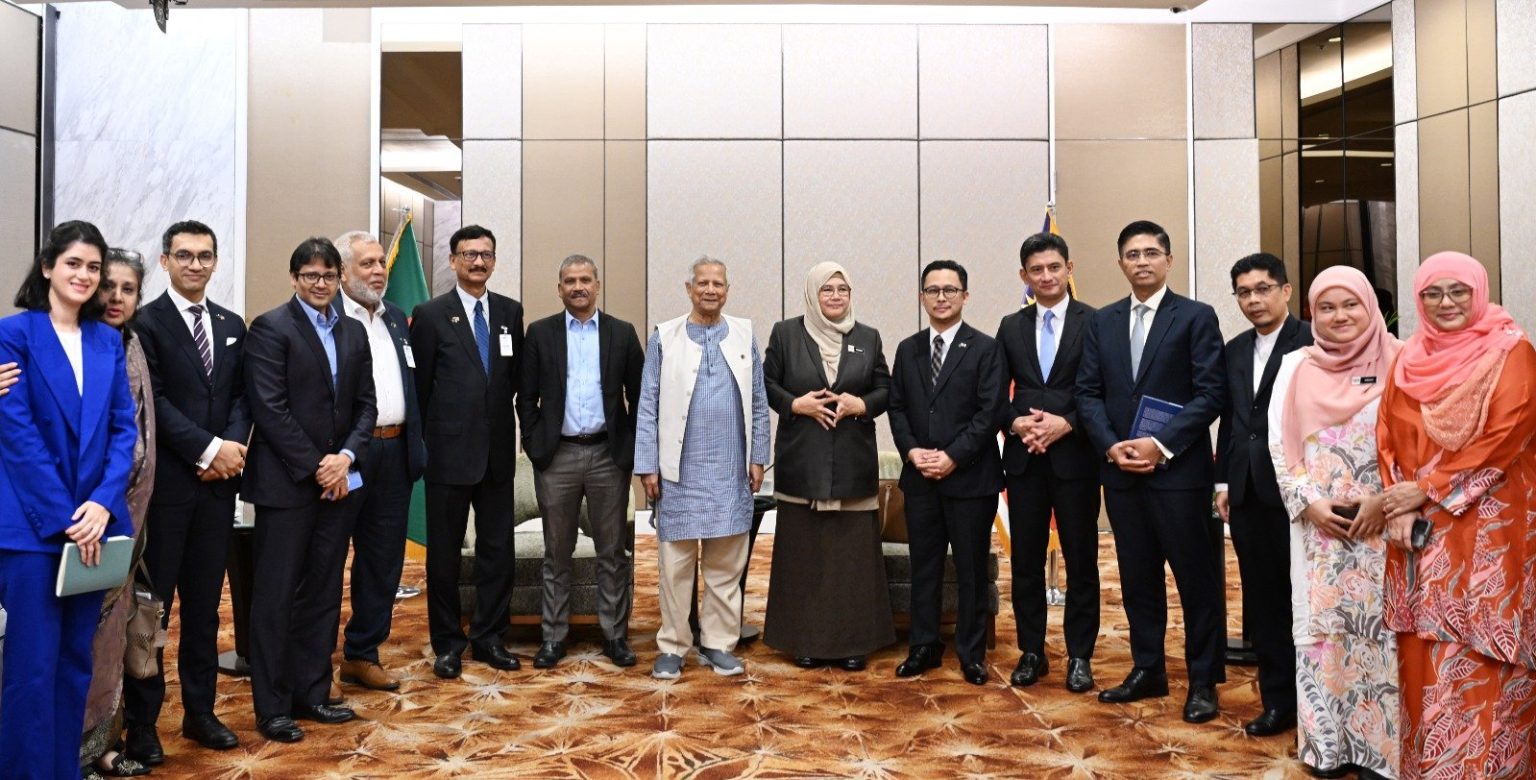Bangladesh has formally sought Malaysia’s support to establish a dedicated halal industrial park, aiming to position itself within the booming global halal market, currently valued at USD 3 trillion and projected to reach USD 5 trillion by 2030.
The proposal was made during a high-level meeting in Kuala Lumpur on Tuesday, where Bangladesh’s Chief Adviser, Nobel Laureate Muhammad Yunus, met with key Malaysian officials from the halal industry, reports BSS.
“Let’s make a move on this,” Professor Yunus urged during the discussions, highlighting Bangladesh’s potential as the world’s third-largest Muslim-majority nation to become a key player in halal production and exports.
The Malaysian delegation was led by Datin Paduka Hajah Hakimah binti Mohd Yusoff, coordinator of halal affairs under the Malaysian Prime Minister’s Department. Also present were Sirajuddin Bin Suhaimee, Director General of the Department of Islamic Development Malaysia (JAKIM), and Hairol Ariffein Sahari, CEO of the Halal Development Corporation (HDC).
Malaysia, which operates 14 halal industrial parks and holds a strong foothold in the global market, is regarded as a model for halal ecosystem development. Other notable players in the sector include countries from the Middle East, as well as Thailand, Australia, and New Zealand.
Bangladesh’s halal industry remains in its early stages. Currently, the Islamic Foundation Bangladesh is the sole authorized body for halal certification, with only 124 manufacturers certified to date. Officials believe the country could significantly expand its footprint with improved certification infrastructure and industry support.
Chowdhury Ashik Mahmud bin Harun, Executive Chairman of the Bangladesh Investment Development Authority (BIDA), emphasized the need for technical collaboration. “Maybe we can work together to map out what’s needed to build a halal products industry,” he said, adding that many Bangladeshi companies are eager to enter the halal export market. In response, Malaysian officials pledged to support the initiative, with JAKIM’s Sirajuddin Bin Suhaimee confirming that a delegation will soon be dispatched to Bangladesh to assess its halal industry needs and potential.
The meeting also saw the exchange of a formal note of cooperation between the two countries focused on building a halal ecosystem — a move described by officials as a step forward in “halal diplomacy.”
Professor Yunus praised the engagement as an eye-opener. “Thank you for the insight — it feels like a class on halal products,” he remarked. Other members of the Bangladeshi delegation included Foreign Adviser Md Touhid Hossain, Law Adviser Asif Nazrul, Energy Adviser Fouzul Kabir Khan, Special Envoy to the Chief Adviser Lutfey Siddiqi, and Senior Secretary for SDG Affairs Lamiya Morshed.


